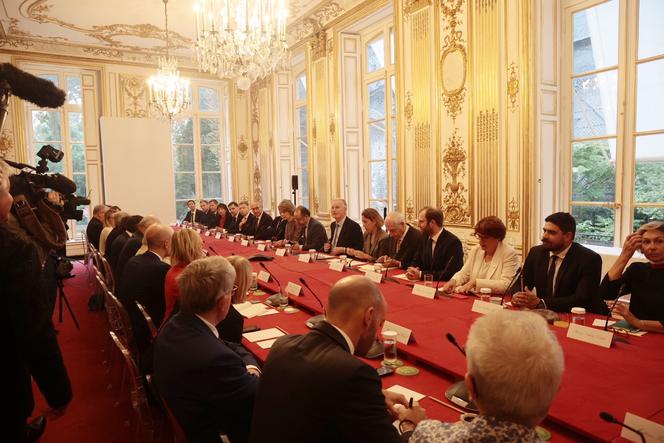
Two incidents have served to demonstrate the far-right’s hold on the new French government, which was appointed just three days ago. On Tuesday, September 24, the new interior minister, Bruno Retailleau, made comments on immigration and the justice system that far-right leader Marine Le Pen would not have rejected, but against which two of his colleagues spoke out. Meanwhile, the newly-appointed economy minister, Antoine Armand, expressed his view that the far-right Rassemblement National (RN) party was not part of the acceptable “republican arc,” which earned him rebukes from both Le Pen and Barnier.
Retailleau has been omnipresent in the media since his appointment to the interior ministry, breaking with the common rule the prime minister had laid down for his government, that of “acting before communicating.” Setting the tone for the period to come, Retailleau said he had only “one watchword: to restore order,” and wanted “to take all possible steps” to “reduce immigration in France.” New legislation on the subject; reforming State Medical Aid; reinstating the “offense of illegal residence,” which had been abolished under former president François Hollande; random border controls, etc. “We’re going to see how far we can go,” he said on television on Monday evening.
Senator Retailleau’s convictions are very well known in the political sphere, but hearing them being hammered home by the interior minister has not only appalled the left, but also part of Macron’s supporters. “Retailleau would make [right-wing former president] Sarkozy look like a leftist,” quipped MP Sacha Houlié, an ex-member of Macron’s party. “It’s the return of the Trocadero right!” he added, referring to a particularly conservative, Catholic fringe of the right.
More problematically for the government’s cohesion, Retailleau took aim at the justice system, calling for “changes to a penal policy which, for a very long time, has allowed the right to not enforce sentences to take root.” This was a shot across the bow of his colleague, Justice Minister Didier Migaud. Migaud retorted that Retailleau “should know that justice is independent in our country” and that “it’s not always accurate” to claim that it “is slow or doesn’t convict enough,” while adding he was “ready” to have “a certain number of discussions with Bruno Retailleau.”
While confrontation between the justice and interior ministries is a classic feature of French cabinet life, the clash between the two men has a bad ring to it, at a time when the government has barely been appointed and as Barnier had called, on Sunday evening, for “cohesion” and “brotherhood” among his team. “Bruno Retailleau started by attacking justice because he doesn’t want to attack his police officers, and doesn’t want to say that we have a calamitous clearance rate” (6% for robberies, 7% for burglaries in 2022, according to interior ministry statistics), said former justice minister Jean-Jacques Urvoas (Socialist).
You have 57.91% of this article left to read. The rest is for subscribers only.